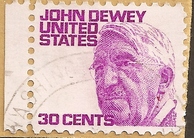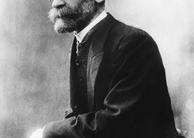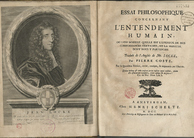|
Philosophy
Page 6/6 | Showing results 76 - 85 of 85
2011, Vol. 3 No. 03
John Dewey was an ingenious and significant figure whose criticisms spanned a wide range of disciplines, including philosophy, education, politics, aesthetics, and ethics. The late American philosopher Richard Rorty, in Philosophy and the Mirror... Read Article »
2011, Vol. 3 No. 01
Throughout Émile Durkheim’s Social Facts, he provides an account of what he deems to be the correct nature of social facts. This essay explores his account in order to assess its relation to both methodological holism and methodological... Read Article »
2011, Vol. 3 No. 01
Although peace and pacifism are familiar ideas to most students today, for much of human history these concepts have been relegated to the religious domain and excluded from the study and practice of politics.[1] At the same time, war--organized... Read Article »
2010, Vol. 2 No. 12
In his seminal text, Leviathan, the philosopher Thomas Hobbes offers what was then a radically novel conception of the origins of civil government. Hobbes’ ideas of the commonwealth are predicated upon his views of human nature and the state... Read Article »
2010, Vol. 2 No. 10
A nine-foot-tall, royal blue giant creeps low to the ground, brushing by exotic foliage. He holds a proportionally large bow and arrow in hand. In an instant he pauses, keeping entirely still, before loading an arrow into his weapon. He pulls back... Read Article »
2010, Vol. 2 No. 10
The advent of digital computers and contemporary neuroscience has fundamentally changed possible approaches to artificial intelligence (AI). Mankind’s perpetually evolving technological capacity inevitably leads to faster processors, more... Read Article »
2010, Vol. 2 No. 09
In his article “Brain Bisection and the Unity of Consciousness,” Thomas Nagel suggests that the ordinary conception of a unified mind is misled. To support his claim, he turns to data concerning patients whose corpus callosum has been... Read Article »
2010, Vol. 2 No. 08
From the time of the ancient Greek philosophers to modern contemporaries, the mind-body problem has been perpetually debated. With neuroscientific evidence in mind, traditional Cartesian dualism, which establishes that mental and physical substances... Read Article »
2010, Vol. 2 No. 08
For centuries philosophers have struggled to define personal identity. In his 1690 work An Essay Concering Human Understanding, John Locke proposes that one's personal identity extends only so far as their own consciousness. The connection between... Read Article »
2009, Vol. 1 No. 11
Aristotle played with the idea of human life as a drama and its role on the Greek stage in his Poetics, defining tragedy—the highest form of drama, of art, and of life—as “a mimesis of an action that is serious, complete, and of... Read Article »
Expedited Article Review
Submit an article and get a decision fast.
If you need a fast decision, INQUIRIES Journal offers expedited processing of your submission for a small fee. Depending on the expedited review option you choose, you can receive a decision in as few as 5-days.
In addition to a shorter review period, the fee supports the journal's continued operation and open-access publishing model. Standard submissions are always free. Submit Now » - Submit an Article to Inquiries Journal -
|







